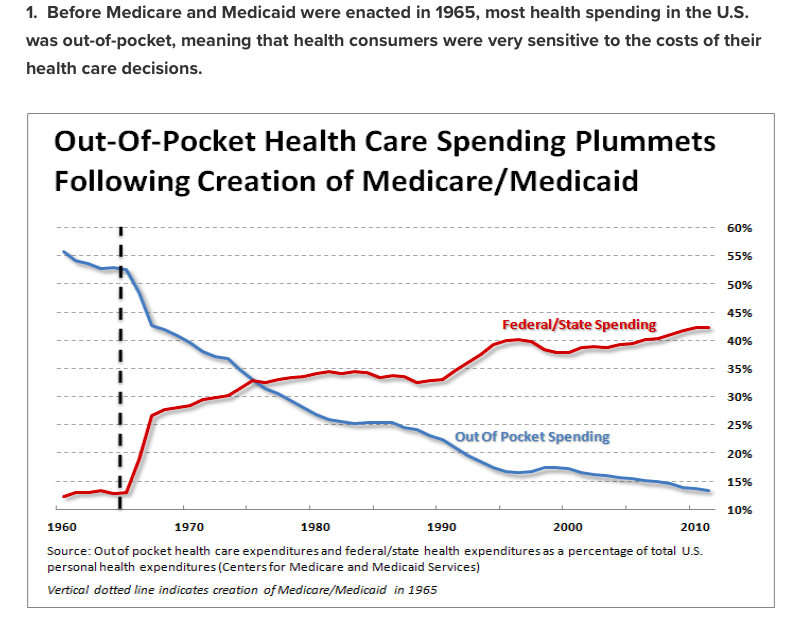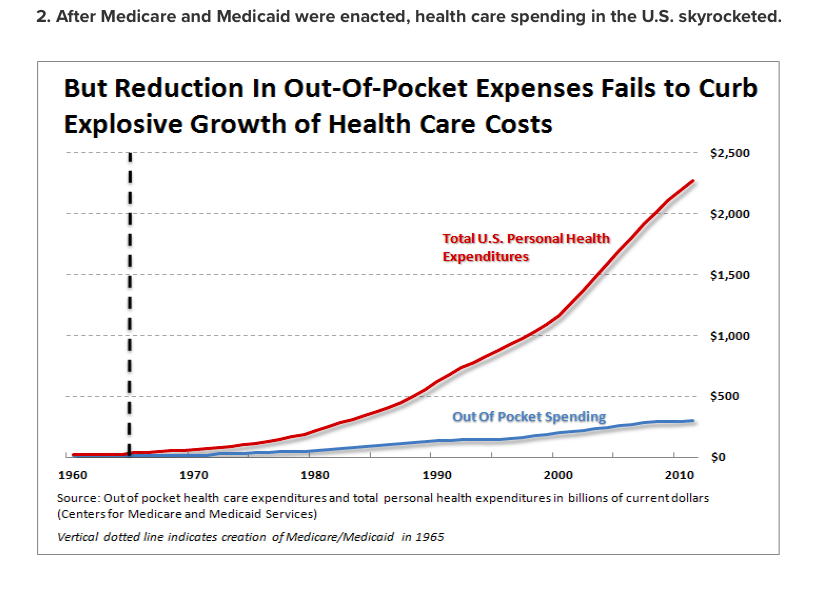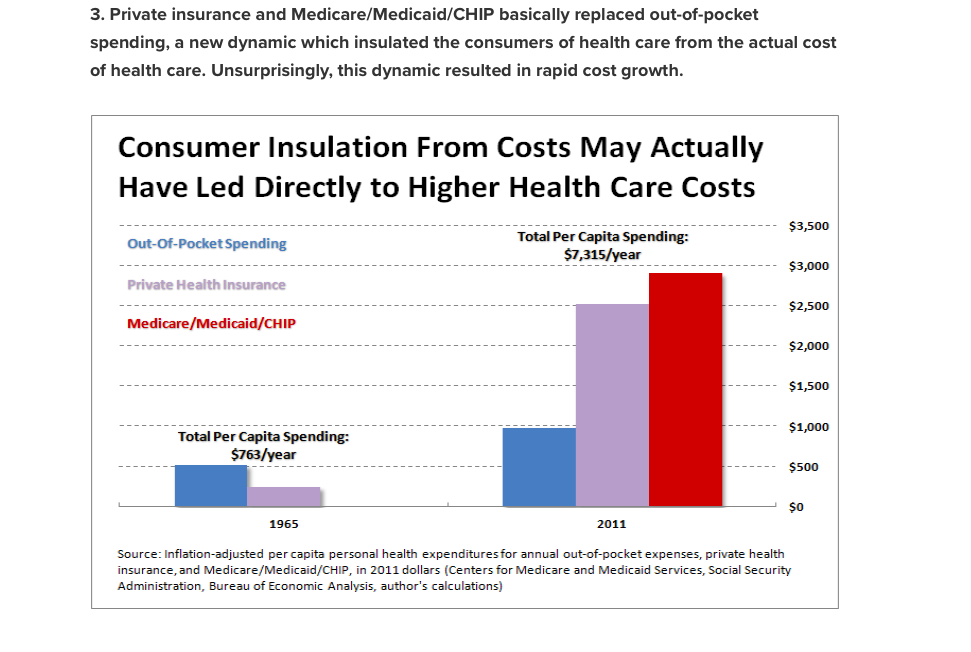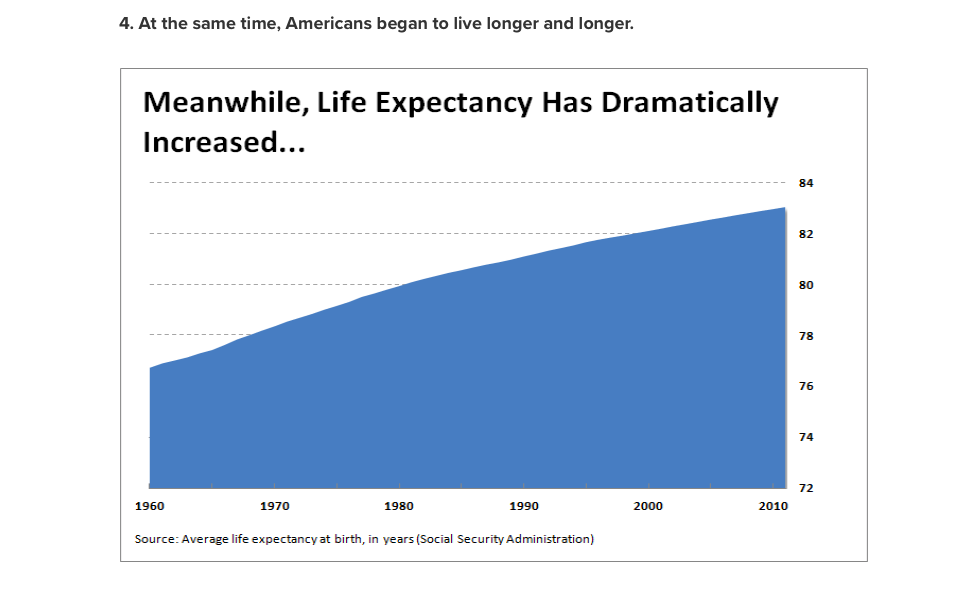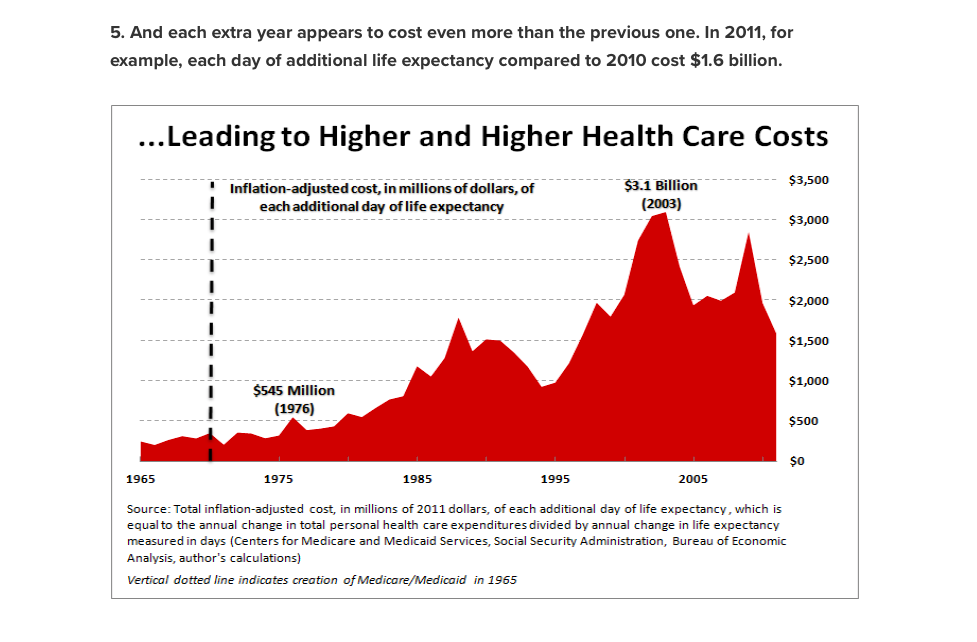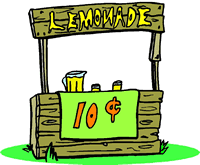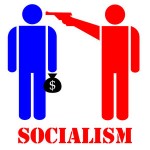
As I’ve quoted before:
“Whether one likes it or not, it is a fact that the main issues of present day politics are purely economic and cannot be understood without a grasp of economic theory.”
Wrote Ludwig von Mises.
I think his words are true.
And as I’ve also said before:
Like the human body, knowledge forms an indivisible unity. It’s interconnected and deeply interwoven. Knowledge is hierarchical and contextual: one part flows inevitably into another.
At the foundation of it all is philosophy.
Philosophy forms the underpinnings of all knowledge.
People don’t believe me when I say this, and yet it’s the truth: I don’t particularly care for politics and economics.
The reason — the only reason — I’ve spent so much of my life and my time writing about these subjects is that they’re inescapable, and because they affect our lives so immediately and extraordinarily:
One is either knowledgable about them, or one isn’t.
One is either informed or one isn’t.
One either buys into the easy platitudes of the day — right, left, or middle, it makes no real difference — or one considers the issues for oneself and forms non-dogmatic conclusions.
Package-deals — i.e. what right, left, and middle offer — do not work for philosophy. Philosophy is too vast and complex.
It requires independent thought, and a great deal of it.
It takes a great deal of thought and conscious effort.
It requires independent integration, which is what true apprehension consists of.
One either jumps in and swims, or one is swept along with the tides and the trends — until, in the latter case, one grows old and one day finds that he holds convictions — convictions he’s even willing to die for, the foundations of which, however, he’s never seriously thought about or questioned, but mostly grew up with or among.
This not only can happen: it happens, I think, more often than not. People grow old and die holding like grim death onto beliefs, either secular or non, it doesn’t matter, which they’ve never bothered to seriously investigate. It is a tragedy.
Two of the most regurgitated buzz-word platitudes I hear today, rivaling even “inequality and privilege” (and not unconnected with them), are “corporations” and “capitalism.”
In my experience, “capitalism” as it’s used by the left is seldom defined — and even more seldom, correctly defined — so that it’s turned into a kind of non-word, which is to say, an anti-concept. For this reason, I myself have stopped using it to denote free-exchange. It’s been corrupted.
Karl Marx is often credited with coining the term “capitalism,” but in actuality Marx was far from the first to use it. Neither, as you’ll also often hear, was William Thackeray’s 1854 novel The Newcomes: Memoirs of a Most Respectable Family the first place it appeared.
The French socialist Louis Blanc’s employment of the term in Organisation du travail precedes Thackeray’s and is, in any case, more significant in the history of both the use of the term and of social and political thought generally. As economic historian Geoffrey M. Hodgson observes, the word capitalisme did not appear “in at least the first five editions” of that book (1839 to 1848), but emerges in 1850’s ninth edition, in which Blanc argues that the fact of capital’s usefulness should not be “confused with what I call capitalism, that is to say the appropriation of capital by some, to the exclusion of others.” Hodgson notes a still earlier appearance of the term, possibly the first, in the English translation of an article Blanc penned during his exile in London.
Writes Blanc, “The suppression of capitalism cannot, then, have anything to do with the suppression of capital.”
(Link)
But, whatever.
Corporations, like business partnerships and LLC’s, are not state-created.
Here is a thorough though technical article debunking misconceptions and myths about the totally misunderstood and vilified “corporation.”
Here is another good article, written with exceptional clarity and logic, at the Library of Economics and Liberty, which, by the way, is an incredible non-partisan resource for true economic literature.
Here is the short version: corporations are VOLUNTARY (contractual) agreements between humans, and if you want to “do away” with this business organization called the corporation, then be prepared for no more driving, flying, bicycling, shipping, phoning, computing, television, newspapers, magazines, books, mp3 music, modern medicine, beauty products, banks, private postal service, plumbing, refrigeration, electricity, all other energy, and virtually everything else.
The truth is that any business, no matter how small, can become incorporated. In a free society, anyone who wants to grow their own food or plants or weed on their own land or in their own home or ON their home is allowed to do so. They can become an incorporated business, or not.
People should be entirely free to do this whether they do it by means of hydroponics, vertical gardening, or anything else.
For the exact same reasons, if a person wants to sell to me food or plants she’s grown and the transaction is purely voluntary, we in a truly free society are entirely free to do so.
Also — and this is for the exact same reasons as well — if a person starts up a business on her own property or through voluntary transaction rents a property (we’ll call it a “store” or a “restaurant”) which acts as a sort of middle-person between me and the grower of food, that person is entirely free to do so.
The same is true of a person who, for instance, harvests and distills brandy on her property, and the person who opens a business called a “bar” or “liquor store,” which acts as a middle-person and which people are free to patronize, or not.
All of these businesses can freely become corporations.
I repeat: in a truly free society, all of these (and everything like it) are permissible, legal, and good — just as we are free to voluntarily buy or sell things through the mail or the internet.
Upon the other hand, it is NOT just or right to force anyone into any lifestyle, as no government has the right to infringe upon private transactions and businesses, so long as they are all voluntary and non-coerced, and that includes (incorporated) businesses that become fantastically successful and wealthy.
There’s Nothing Wrong with Socialism — as Long as It’s Voluntary
How government regulations trash the environment
Environmental Protection: The Surprising Solution
Does all this sound stupidly obvious?
Good. It is. And we agree.
You cannot force me to shop at Walmart. I cannot force you to shop at Whole Foods or the local co-op. You cannot force me into yeoman-or-cottage economics. I cannot force you into being a business-owner. You cannot force me to avoid organic food or meat or soda-pop or booze. I cannot shut down (or have shut down) your business because it sells alcohol or meat or non-organic food.
We can win people’s business, or not. We can also coexist. We can especially do this if the economy is vibrant, which under conditions of freedom, it is.
I know: this is all horribly basic. And yet, and yet:
“Isn’t our only hope that industrialized society will collapse?”
From a piece I wrote some time ago:
Laissez faire is first and foremost a beautiful notion: leave the world alone. It manages itself.
In many ways this idea is the very seat of human civilization.
The term is pronounced lay-say-FAIR and derives its present-day meaning from Vincent de Gournay’s half-forgotten codification:
Laissez-faire et laissez-passer, le monde va de lui même.
“Let it be and let goods pass: the world goes by itself.”
People who believe in total, unadulterated laissez faire, as I do, believe that society contains within it the capacity for ordering and managing its own path of development.
This includes ecosystems of every stripe and variety, which are clearly best managed by a system of full private property rights, and not centralized planning committees or an elite bureau who determine everything for the rest of us.
It follows thus that people should enjoy the liberty to manage their own lives, associate as they please, exchange with anyone and everyone, which includes — and please listen closely — owning and accumulating property and otherwise being unencumbered even when one grows wealthy.
For all the lip-service they pay anarchism, the egalitarians, the communitarians, the agrarians, and all the other similarly-minded groups, they simply do not tolerate hierarchy, neither in wealth-and-property accumulation, nor in employment structure — blanking out, of course, the incontrovertible fact that human beings possess varying degrees of motivation and ambition: the two greatest factors in “inequality and privilege.”
It is for this reason that implementing egalitarianism in any form requires the diametric opposite of laissez faire: it requires force.
Laissez faire asks only this: that you leave others alone.
Laissez faire is deeply connected with the concept of individual rights.
Laissez faire states that your rights, my rights, everyone’s rights stop where another’s begin.
There are, in the present day, two main alternatives to laissez faire, neither of which is more convincing than the other:
There is the so-called Left, which, to speak generally, believes that if we let the economic sphere be free, the world will collapse. The Left then hypothesizes all manner of disaster that will befall humankind without government control.
And then there is the so-called Right, which is every bit as misbegotten, convinced as it is that state control must happen in, for instance, your bedroom, or the world will collapse into debauchery and crime and war.
Laissez faire rejects both views — for semi-obvious reasons:
“The harmony of interests,” as Claude Frédéric Bastiat called it, which make up the social order. And the fact that human freedom is a birthright.
Laissez faire is the view that the artists and creators, the merchants and business-people, the philanthropists and farmers, the entrepreneurs and property-owners — all, in short, should be left alone.
It is the view that everyone, regardless of race, sex, sexual orientation, color, class, or creed, possesses the inalienable right to her own life and property — and only her own life and property — and this is the only way for all humans to live freely.


